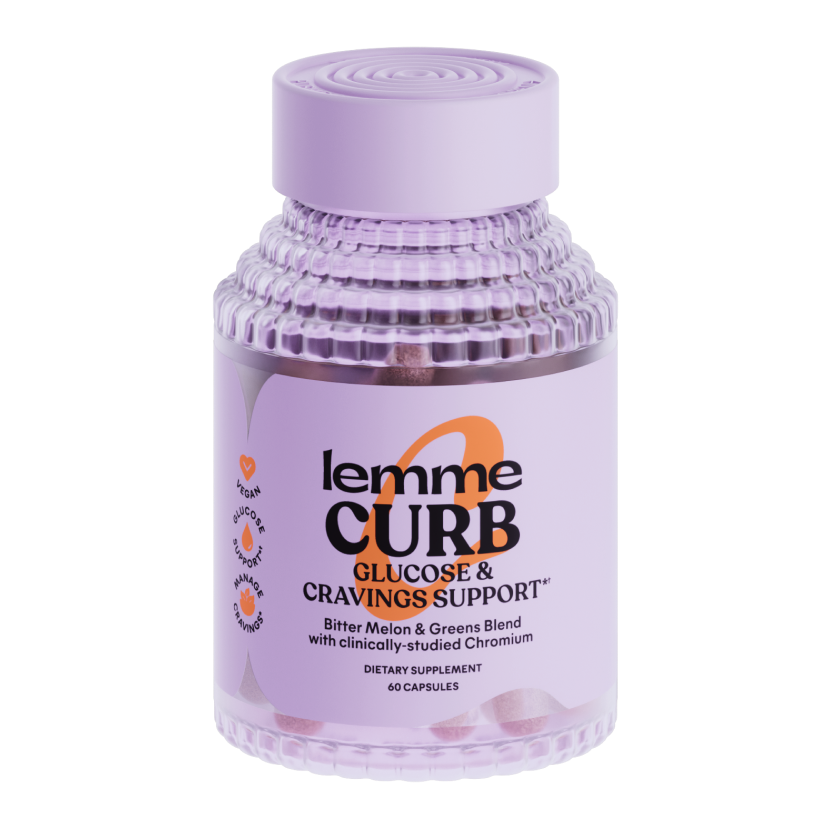
Prebiotics vs. Probiotics: What’s the Difference?
Prebiotics and probiotics both play key roles in your digestive system and gut health. Yet, while prebiotics can have many of the same health benefits as probiotics, the two function differently in your gastrointestinal system to accomplish these benefits.
What are prebiotics and probiotics, and how do the two differ? Read on to learn how each one functions in your body to help promote digestive health and support a healthy gut.
What Are Probiotics?
Probiotics are beneficial strains of bacteria that can yield health benefits by supporting normal function within gastrointestinal tract. Many different strains of live bacteria classify as probiotics, and two of the most common strains are Lactobacillus and Bifidobacteria.
You can get these beneficial live microorganisms from fermented food sources such as kefir, sauerkraut, kimchi, kombucha, and yogurt. In addition to food sources, you can also take probiotic supplements to add more of these good bacteria to your gut microbiome.
Probiotics are important because healthy bacteria are not the only living organisms in your gut. There are trillions of microbes in your gut, including fungi, yeasts, and bacteria — and some of these are bad microbiota that can cause infection or illness if not kept in check.
Consuming probiotic foods or supplements helps add more beneficial bacteria into your gastrointestinal system to help maintain the right balance for a healthy microbiome.
What Are the Benefits of Probiotics?
Because probiotics add to the ecosystem of beneficial bacteria in your gut, they can contribute to your overall health in several ways.
Probiotics can aid with digestion, especially when it comes to foods such as fiber that your stomach enzymes may have difficulty hydrolyzing (i.e. breaking down). Because probiotics can help your stomach break down fiber, these live bacteria can help your body to absorb vital nutrients, like fatty acids, vitamins, and minerals, from your diet.
Probiotics can also help relieve certain digestive issues, which can arise if you experience an imbalance of more bad bacteria than good bacteria in your gut flora. If you are dealing with constipation, bloating, or other uncomfortable digestion-related symptoms, the balance that probiotics can bring to your gut microbiome may help provide some relief.
Probiotics can also help support your immune system. The healthy gut microbiome they support can strengthen your gastrointestinal system and ensure that beneficial bacteria line the walls of your gut and intestine. These fortified walls can make it less likely for bad microorganisms to pass through your gut or intestine and into your bloodstream, where they may cause illness or infection.
Additionally, probiotics can help support vaginal health in women. Your gastrointestinal system is not the only place you have a microbiome — women also have a vaginal microbiome that requires an optimal balance between good and bad microbes to be healthy. Probiotics can help maintain this balance to support vaginal health overall.
What Are Prebiotics?
Once you take probiotics, they need a way to survive in your gastrointestinal tract to provide health benefits such as digestive support. This is where prebiotics come in — prebiotics help feed the probiotics in your gut microbiome to provide them the energy needed for optimal function.
Prebiotics are a group of non-digestible nutrients naturally present in certain fruits, vegetables, or whole grains, particularly those rich in complex carbohydrates like fiber and resistant starch.
Common prebiotic food sources include:
- Jerusalem artichokes
- Chicory root
- Leeks
- Flaxseed
- Soybeans
- Legumes
- Tempeh
In addition to prebiotic foods, there are also prebiotic supplements you can take to help feed the good bacteria in your gut microbiome.
There are many different types of prebiotics, but one common type in foods and supplements is oligosaccharide carbohydrates (OSCs). Because prebiotics such as OSCs act as food for beneficial bacteria, they can contribute to many of the same health benefits as probiotics, including support for a well-balanced gut microbiome and support for overall digestive health and immune system function.
How Do Prebiotics Work in the Body?
Your stomach enzymes cannot hydrolyze prebiotics, so they go straight to your intestine in your lower digestive tract. There, probiotics feed off them, breaking the prebiotics down through fermentation to extract energy.
Fermentation produces short-chain fatty acids (SCFAs), such as lactic acid or butyric acid, which act as metabolites to offer various health benefits to your body.
Should You Take Both Prebiotics and Probiotics?
Many supplements contain both prebiotics and probiotics because prebiotics can help raise the levels of probiotics in your gut flora. A synbiotic is a food source or supplement that contains both prebiotics and probiotics, and synbiotics can have many positive effects on your digestive health and overall well-being.
Foods such as cheese, kefir, and some yogurts are synbiotics; you can also take synbiotic dietary supplements. When you choose a synbiotic supplement, make sure you choose a clinically-studied option such as Lemme Debloat.
Lemme Debloat contains two clinically studied probiotic strains as well as a vegan prebiotic to create an all-natural, high-quality synbiotic that supports a healthy gut microbial balance and provides relief from some digestive discomfort such as bloating — all with just two gummies a day.
Important Note: If you’re thinking about taking dietary supplements, it is important to first consult your healthcare provider or a dietitian before adding them to your daily routine, especially if you’re already taking other supplements or prescription medications.
What Are Other Ways To Support Your Gut Health?
In addition to synbiotic food or supplements, you can also support your gut health through other healthy lifestyle choices:
Try to eat a fiber-rich diet and limit the amount of meat or refined carbs you consume.
Additionally, pay attention to the types of fiber you eat — make sure you choose whole-food dietary fiber options instead of the less healthy packaged and processed choices.
Make sure you stay active and incorporate exercise into your routine at least several times a week, even if it’s just a slow walk or some stretches to keep your body moving.
Additionally, get a good night’s rest and practice stress management techniques. Travel, inadequate sleep, or other stressors can impact the levels of beneficial bacteria in your gastrointestinal system, and practicing stress management can help your body cope with times of tension.
The Bottom Line
Together, prebiotics and probiotics make a great team to support your digestive health. Probiotics can help restore a healthy balance to your gut microbiome, and prebiotics feed probiotics to help sustain their function.
When you incorporate both prebiotics and probiotics into your daily routine, you choose to help support your gut health and your overall well-being.
If you struggle with digestive issues or simply want to support your digestive health and overall well-being, a synbiotic supplement with probiotics and prebiotics like Lemme Debloat may be a great addition to your diet.
Check out our blog for more info on how to support your wellness, from gut health to stress management to nutrients and more!
Sources:
Immunity and probiotics | ScienceDirect
Introduction to pre- and probiotics | Food Research International
Probiotics, prebiotics and synbiotics- a review | Journal of Food and Science Technology







